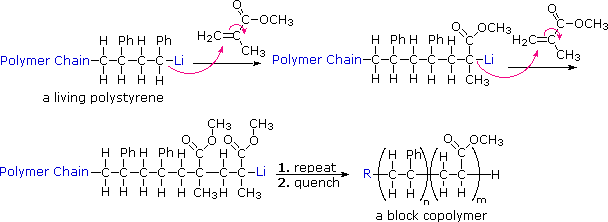Understanding Polymers: The Scientific Research Behind Versatile Products
Discovering the Varied Applications and Advantages of Polymers in Different Industries
Polymers, with their varied range of buildings and functionalities, have actually come to be crucial in different industries, each reaping special advantages from their application. From boosting safety and efficiency in the automobile sector to changing medical tools in the healthcare market, polymers play a critical function.
Automotive Field Applications
Polymers play an essential function in enhancing the efficiency and longevity of different components within the automobile sector. These versatile materials are extensively made use of in the production of different components, varying from indoor parts to under-the-hood applications. One popular use of polymers in the auto market is in the production of lightweight components. By changing conventional steel parts with polymer-based alternatives, cars can accomplish better gas performance without compromising on stamina or safety.

Health Care Industry Advantages
In various healthcare applications, the advantages of making use of polymers are widely identified for their varied variety of beneficial residential properties. Polymers play a crucial duty in the health care sector as a result of their convenience, biocompatibility, and cost-effectiveness. Among the key benefits of polymers in medical care is their ability to be customized to specific demands, such as adaptability, durability, and biodegradability, making them excellent for a variety of clinical applications.
Polymer-based products are extensively made use of in medical tools, such as catheters, implants, prosthetics, and medicine shipment systems, due to their biocompatibility and capacity to mimic natural tissues. These products can minimize the danger of allergic responses or beings rejected, enhancing person safety and security and outcomes. Furthermore, polymers are light-weight, making them ideal for wearable medical devices and ensuring client comfort.
In addition, polymers make it possible for the development of cutting-edge therapy methods, such as hydrogels for tissue engineering and nanocomposites for targeted medication distribution. Their convenience of processing and sterilization makes them crucial for keeping high criteria of hygiene in healthcare settings. In general, the diverse benefits of polymers add considerably to improvements in medical modern technology and patient care.
Environmental Benefits of Polymers

In addition, polymers can add to power financial savings as a result of additional hints their lightweight nature. In sectors such as transportation, light-weight polymer products can help in reducing fuel intake and greenhouse gas discharges. In addition, polymers can enable the growth of energy-efficient items such as insulation materials that improve power preservation in buildings.
Furthermore, polymers play an important role in minimizing water pollution. The use of polymer-based purification systems can successfully remove toxins and impurities from wastewater, safeguarding water resources and ecological communities. Overall, the ecological benefits of polymers make them valuable assets in advertising sustainability and eco-friendly practices across various industries.
Polymers in Electronic Devices and Technology
Taking into consideration the boosting need for innovative and sustainable solutions in contemporary markets, the integration of sophisticated polymer modern technologies in the realm of electronics and modern technology has arised as an essential method for driving performance and performance. Polymers have actually changed the electronic devices market by making it possible for the manufacturing of lighter, much more adaptable, and resilient electronic devices. From mobile phones to clinical gadgets, polymers play a critical duty in enhancing product design and performance.
One substantial advantage of polymers in electronics is their insulating properties, which help shield delicate digital parts from ecological variables and electrical disturbance. Furthermore, polymers are essential in the growth of adaptable display screens, wearable innovation, and read the full info here published electronic devices, supplying unlimited possibilities for developing smart and interconnected tools.
In addition, the usage of polymers in electronic packaging has actually caused developments in miniaturization and thermal administration, boosting the overall performance and dependability of electronic systems. As innovation remains to progress, the convenience and versatility of polymers will certainly drive better innovation in the electronic devices industry, forming the future of modern technology.
Function of Polymers in Building And Construction and Infrastructure
Polymers offer various advantages in the construction sector due to their adaptability, toughness, and cost-effectiveness. One crucial duty of polymers in building is their use in finishes and sealers, providing protection versus ecological elements such as moisture, UV radiation, and deterioration.
Additionally, polymers play an essential function in sustainable building techniques by you can try these out enabling the development of energy-efficient frameworks. Protecting materials made from polymers aid control indoor temperature levels, lowering the requirement for heating and cooling down systems and inevitably reducing energy consumption - Polymers.
Conclusion
In verdict, polymers play a vital duty in numerous industries such as automotive, medical care, environmental, electronics, and building and construction. Their versatile buildings make them important in creating innovative services and items. From enhancing gas efficiency in lorries to enhancing clinical tools, polymers use countless benefits. In addition, their effect on minimizing waste and promoting sustainability highlights their importance in modern applications. The extensive usage of polymers shows their substantial payment to progressing modern technology and enhancing lifestyle.